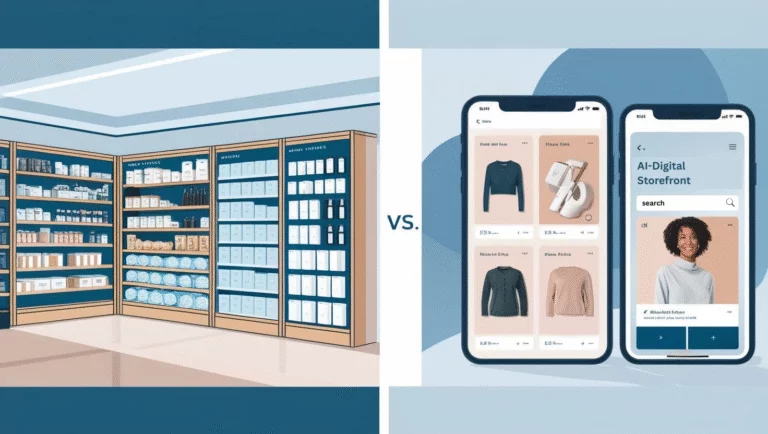Retail success doesn’t rely on great products alone—it’s about how those products are presented, promoted, and positioned. That’s where merchandising comes in.
From store layouts and shelf displays to product recommendations on eCommerce websites, merchandising is the bridge between customer desire and a purchase decision. In this guide, we’ll explain what merchandising means in the retail world, why it’s so important, and how it’s evolving in the digital age.
What Is Merchandising in Retail?
Merchandising in retail refers to the strategies and techniques used to promote and sell products to customers. It involves how products are:
- Displayed (physically or digitally)
- Priced
- Packaged
- Positioned within a store or website
- Promoted through offers or upsells
The goal? Drive purchases while enhancing the shopping experience.
Types of Retail Merchandising
| Merchandising Type | Description |
|---|---|
| Visual Merchandising | Arranging physical displays to attract attention (e.g., mannequins, end caps) |
| Product Merchandising | Choosing what products to feature and where (seasonal items, bestsellers) |
| Omnichannel Merchandising | Aligning offline and online experiences (same offers, pricing, and branding) |
| Digital Merchandising | Using data to personalize product placement and recommendations on eCommerce sites |
| Pricing Merchandising | Promotions, bundle pricing, and dynamic pricing to influence buying decisions |

Why Is Merchandising So Important in Retail?
A well-merchandised store (online or offline):
- Catches attention faster
- Increases conversion rates
- Moves inventory more efficiently
- Boosts average order value
- Enhances customer experience and loyalty
Poor merchandising = abandoned carts, confused shoppers, and lost revenue.
The Technology Behind Digital Merchandising
Modern merchandising isn’t just about how products look—it’s about how data, AI, and search systems work together to personalize, prioritize, and sell smarter.
Here’s how it all comes together technically:
1. Search Algorithms Power Discovery
AI search engines like ExpertRec use:
- NLP (Natural Language Processing) to understand search intent
- Behavioral data (clicks, conversions) to rank top-performing products
- Business logic (e.g., promote seasonal or high-margin products)
Result: Relevant, high-converting search results every time.
2. Smart Product Boosting & Merchandising Rules
ExpertRec lets retailers:
- Pin must-show products for specific searches
- Boost trending or in-stock items
- Demote poor performers or low inventory
All handled visually—no code required.
3. Faceted Navigation for Smarter Filtering
- Filters like price, brand, dietary needs, etc.
- Dynamically generated based on your catalog
- SEO-friendly and mobile-optimized
4. Real-Time Feedback & Optimization
- Know which queries convert
- Identify “no result” terms
- Refine merchandising strategies with real-time analytics

How Digital Merchandising Has Changed the Game
Today, with more shoppers browsing online, merchandising is no longer just about window displays. It’s about:
- Personalization (based on user behavior)
- AI-powered recommendations
- Real-time product sorting and ranking
- Mobile-first merchandising
- Dynamic filters and search enhancements
How ExpertRec Makes Merchandising Easier and Smarter
ExpertRec helps retailers implement digital merchandising without the complexity. Whether you run a Shopify, WooCommerce, or custom eCommerce store, ExpertRec gives you tools to:
- Boost, pin, or demote products in search results
- Create custom rules for product visibility
- Personalize search results for each user
- Display collections dynamically based on trends or campaigns
- Track what shoppers are searching for—and not finding
All without writing a single line of code.
Want to see smarter merchandising in action? Try ExpertRec free for 14 days
FAQs About Retail Merchandising
To increase sales by improving how products are presented and promoted—whether in-store or online.
Traditional merchandising focuses on physical store setup, while digital merchandising uses AI, personalization, and real-time data to optimize online experiences.
Solutions like ExpertRec allow you to manage product ranking, promotions, filters, and recommendations automatically with no-code dashboards.
Absolutely. Even small visual tweaks—like organizing categories or recommending related items—can dramatically improve conversions.
Mostly, but service-based businesses can also use merchandising tactics like bundling, seasonal promotions, or curated landing pages.




